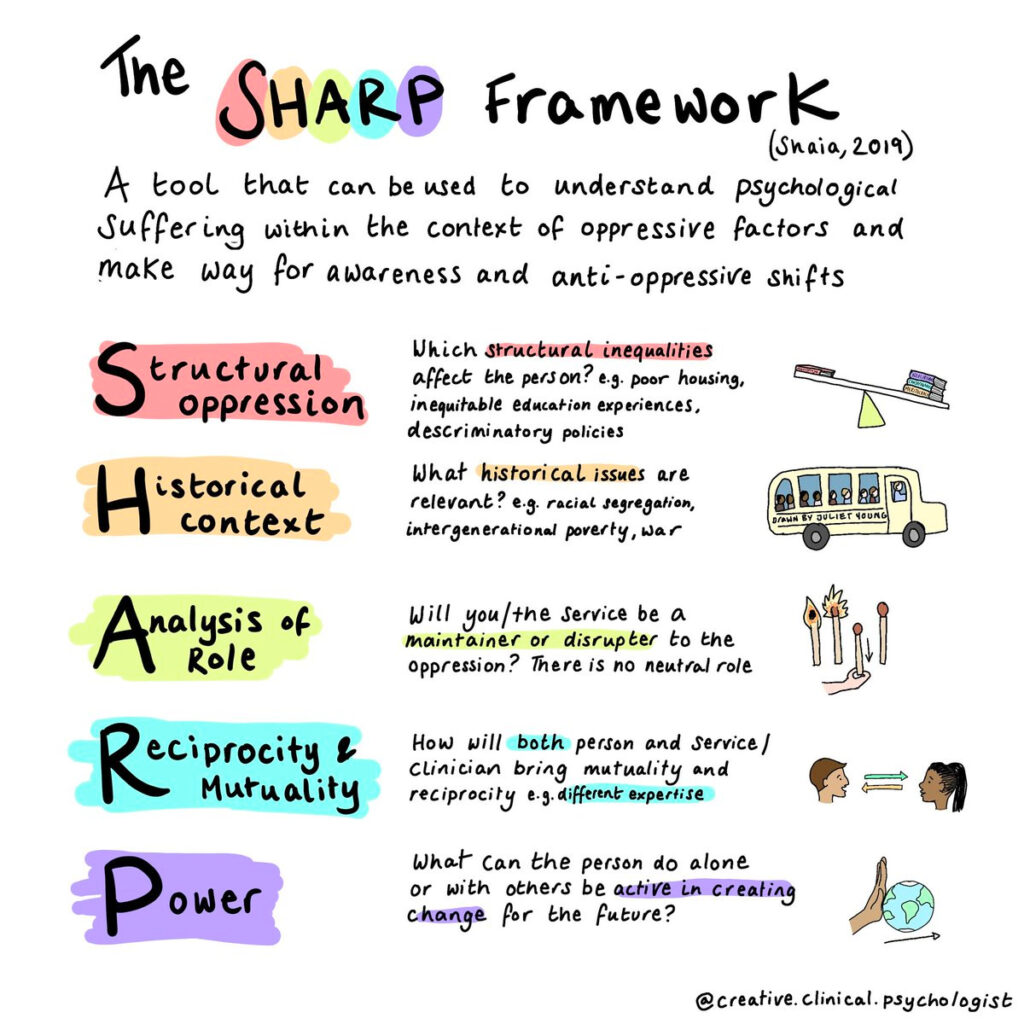SHARP Framework
The SHARP framework runs through the work of the Center for Restorative Change, transforming the way we see our work, our understanding of what community based work means, and what it means to partner. It allows us to show up differently in spaces we work in, even injecting short transactional encounters with transformational energy.
The SHARP framework is a tool developed by the Center’s Executive Director Wendy Shaia that can be used to understand psychological suffering within the context of oppressive factors and make way for awareness and anti-oppressive shifts. It looks like this:
Structural oppression. Which structural inequalities affect the person? E.g. poor housing, inequitable education experiences, discriminatory policies?
Historical context. What historical issues are relevant? E.g. racial segregation, intergenerational poverty, war?
Analysis of role. Will you/the service be a maintainer of or a disrupter to oppression? There is no neutral role.
Reciprocity and Mutuality. How will both person and service/clinician bring mutuality and reciprocity e.g. different expertise?
Power. What can the person do alone or with others to be active in creating change for the future?

Everyone we work with deserves to be validated and affirmed. That can happen even in the context of helping a person access benefits. We are still in a position to ask ourselves how a person’s dignity is affirmed during such an interaction.
By taking structural oppression and historical context into account, we see families as living in the community, not just on a clinical level. We see anti-racism and anti-oppression showing up in our relationships. We might acknowledge that a person may have been given the runaround in a bureaucracy. We might acknowledge that it is frustrating to be on the receiving end of such treatment, and we might partner with the person to attempt to address that. From system failures to race-based trauma, it doesn’t take much more time to see a person’s situation fully. It can be an energizing rather than a draining interaction for everyone.
We understand all people hold different forms of power. We try to hold space so we can support those we work with to stand and sometimes identify their power, seizing opportunities to use it. We work toward changing the focus and tone of all social work to be about reciprocity, racial justice and partnership. It helps us continue to push and transform society towards justice.
You can read Dr. Shaia’s full academic article about the SHARP framework in the Journal of Social Work Values and Ethics here.
